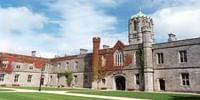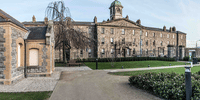This broad-based course provides an excellent foundation for employment or for further study. On completion of the degree in chemistry, you will be able to:
- identify, formulate, analyse and solve chemistry problems
- outline fundamental aspects of chemistry
- design and carry out an experiment to test a hypothesis or theory in chemistry
- prepare written laboratory reports that provide a description of the experiment, explain the
- experiment and the reasoning clearly, and provide an appropriate conclusion
- communicate effectively with the chemistry communities
Many graduates work in industry, including microelectronics and pharmaceuticals, or in government laboratories. Others undertake further study in various specialised areas of chemistry.
Expected lecture hours: Lectures and workshops normally take place in the morning with practical classes in the afternoons in Years 1, 2 and 3. Usually there are 12 to 15 hours of lectures/workshops per week.
Expected lab/practical hours: Usually 6-9 hours per week are spent in laboratory sessions.











